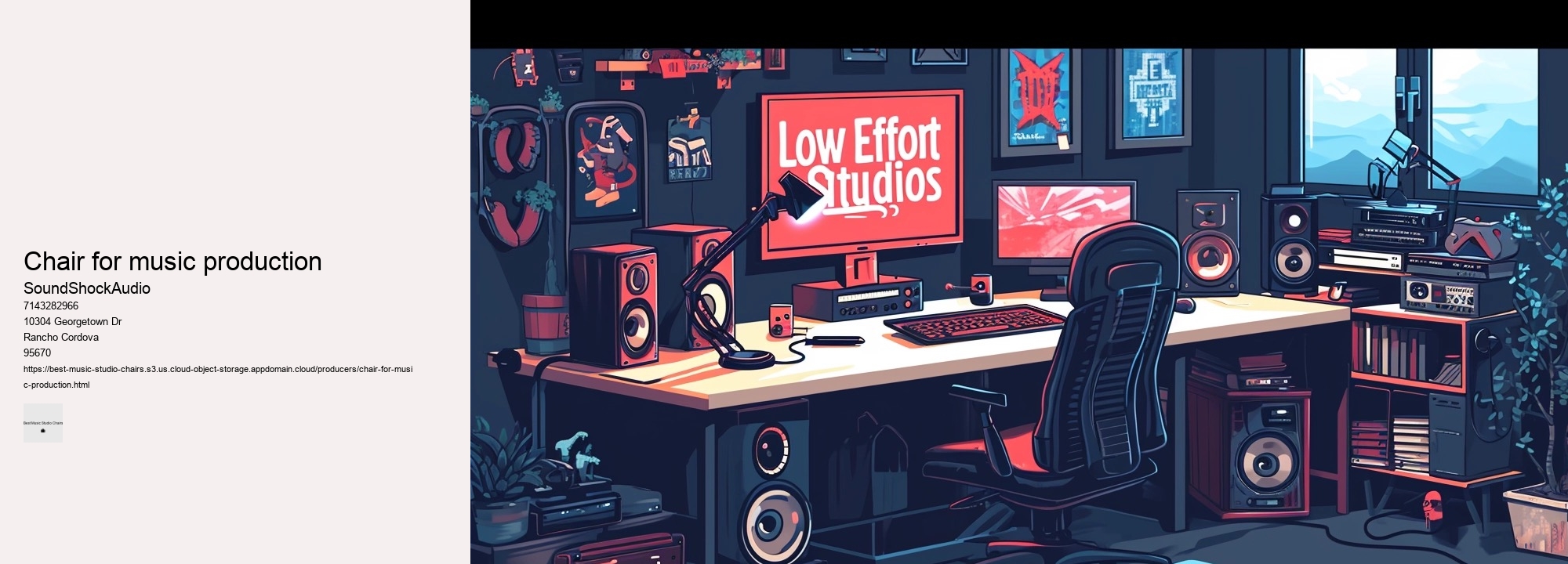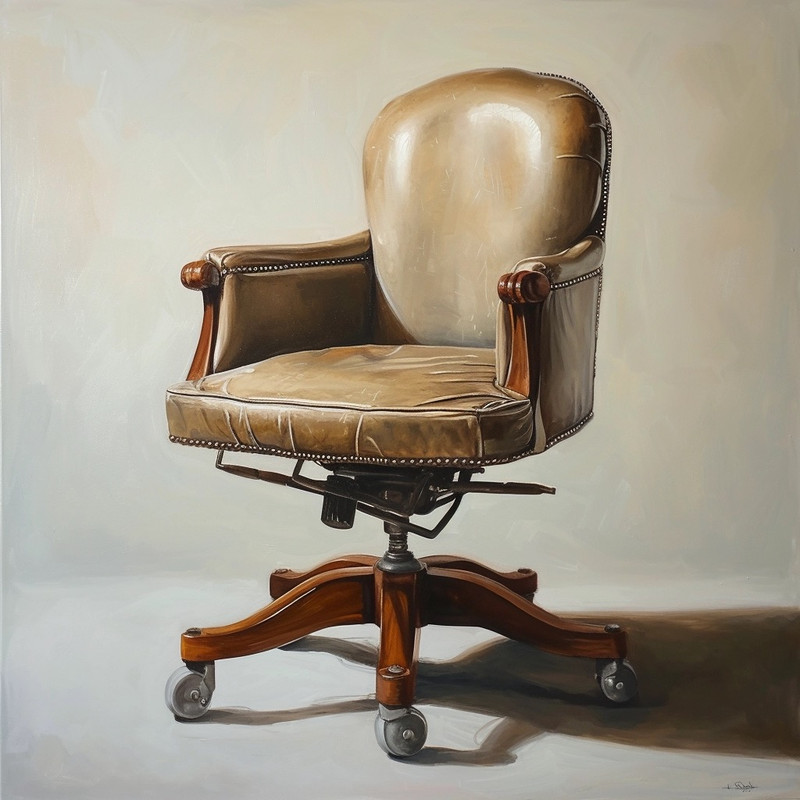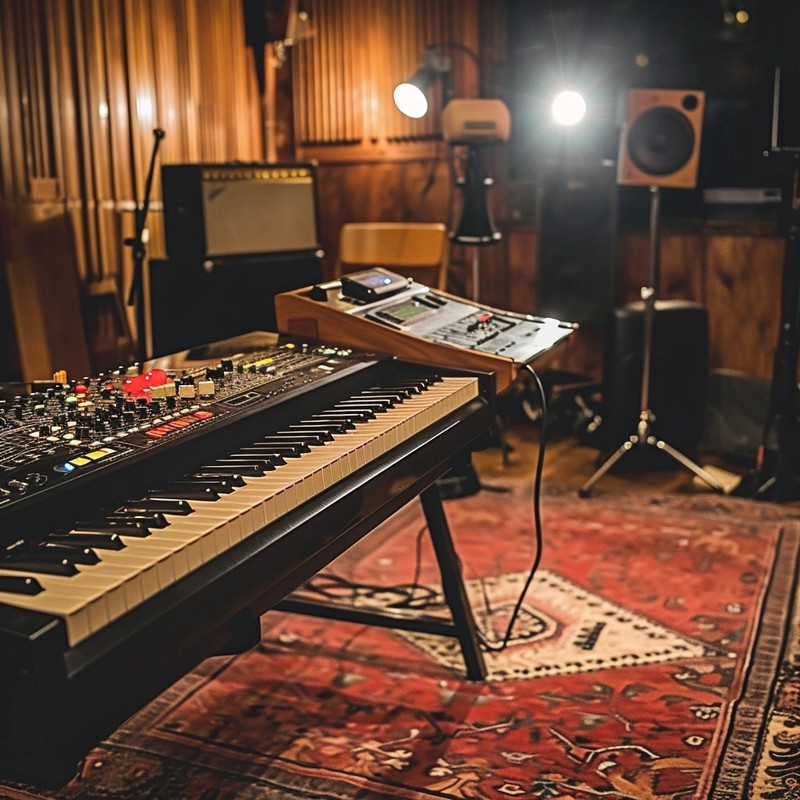

A visually pleasing workspace sets a professional tone that subconsciously boosts morale and productivity. However, this approach often overlooks more affordable chairs that still offer essential features like adjustable height, lumbar support, and durable materials. The contours are sculpted to perfection, cradling the user in a supportive embrace that defies the conventional rigidity of average office furniture.
Mastering Marathon Mixes: How to Stay Comfortable with Top-Rated Studio ChairsWhen embarking on the arduous journey of mastering marathon mixes, comfort can often be the unsung hero that either propels you to new heights or leads to your downfall. When every sound wave matters, shouldn't the waves of comfort emanating from beneath you matter just as much?
Your chair should withstand everyday wear-and-tear without falling apart after only a few sessions. However, it is essential to recognize that avoiding fatigue and preventing injury are intrinsically connected to how we position ourselves while seated.
When seated upon such an exalted perch, distractions fade away like distant echoes; all that remains is you intertwined with your craft—unified in purposeful creation. The right chair can be pivotal in sustaining healthful practices while fostering an environment conducive to creative success—an investment worth making for any dedicated music professional looking to deliver their best work comfortably session after session.
To begin with, consider the ergonomic design of the chair. Choose a chair with adjustable features—think lumbar support that defies gravity or armrests that refuse conformity—allowing you to orchestrate your ideal sitting posture. Creating a pain-free recording experience is often likened to an art form, one where sound engineers and artists alike strive for perfection.
Also essential is considering the aesthetic appeal of the chair; after all, it becomes part of your creative space's ambiance. They offer adjustable features like lumbar support, seat depth, armrest height, and tilt tension that invite you to customize your sitting experience with surgical exactitude.
Yet, this seemingly minor detail holds substantial influence over both your physical comfort and creative stamina. Swivel chair In the realm of interior design, studio seating embodies a unique convergence where aesthetic meets practicality.
Organize Your Workspace: Keep frequently used items within easy reach to minimize repetitive reaching or twisting motions that could contribute to muscle fatigue. Creating a studio environment that fosters creativity and productivity involves more than just the right equipment; it also demands high-quality furniture that can withstand the rigors of long sessions.
A subpar seat can lead to discomfort, distractions, and even health issues over time. Balance cost against features; investing in a quality chair can save you from future back concertos (the painful kind) down the road. Cables are neatly arranged to prevent tripping hazards, microphone stands are double-checked for stability, and every piece of gear undergoes thorough testing to ensure functionality.
When embarking on this journey, comfort reigns supreme. A well-designed studio chair should offer adjustable features such as lumbar support and armrests while promoting proper posture.
Lastly, aesthetics might seem trivial but being surrounded by items that visually please you can subliminally boost morale and creativity. Ultimately, investing in an excellent studio chair elevates your music production environment.
Ergonomics is paramount; after all, what good is a chair if it cannot provide comfort over extended periods? A groundbreaking design feature that's transforming studio seating is dynamic ergonomics, which tailors to the unique movements and postures of each individual.


Musicians should have access to comfortable seating adjusted specifically for their posture and instrument positioning, reducing physical strain over prolonged periods. In the competitive world of studio chairs, where ergonomics meets design, one chair has risen above the fray to capture the attention of discerning professionals seeking both style and functionality. Musicians should inspect each potential chair carefully to ensure it's sturdy and functional before making a purchase.
This subtle shift in mindset can trigger a cascade of motivation and confidence that permeates through every project you tackle. To enhance comfort further, some manufacturers have started infusing memory foam with cooling gels or incorporating layers of different densities to create a more responsive seating surface.
This offers mobility and flexibility, letting you glide across your studio space without missing a beat. Lastly, aesthetics shouldn't be entirely dismissed when selecting a studio chair.
Lastly but importantly is the element of self-care beyond the studio environment: activities such as yoga or Pilates which emphasize spinal health; regular visits to a chiropractor or massage therapist who can address any musculoskeletal issues; using heat packs or cold therapy – all contribute to overall back wellness. In conclusion, selecting a music studio chair that exemplifies durability and build quality is essential for any professional working space.
Space efficiency becomes paramount in these cozy environments where every square inch counts. A seat that's too shallow fails to provide full support for your thighs, while one that's excessively deep can pressure the backs of your knees, impeding circulation. Our bodies are designed for motion; however, during lengthy mixing sessions, we often remain static in a single position.
Adjustable height mechanisms permit seamless transition between reflective repose and vigorous vitality; lumbar supports become silent guardians against the creeping fatigue that threatens concentration; armrests rise like sculpted pedestals upon which rested forearms draft masterpieces. The significance of comfort in such a setting cannot be overstated – it is paramount.
Investing in an ergonomic chair is a statement: you value yourself and take your craft seriously enough to provide the best tools available.

However, comfort extends beyond just physical well-being; it encompasses the mental state as well. Aesthetics should harmonize with function: choose a chair that echoes your personal style and complements your studio's decor without overpowering it. A sleek design can inspire confidence and even become part of your studio's unique branding. By prioritizing ergonomics, materials, durability, style—and above all else—personal comfort preferences—you create an environment where creativity thrives unimpeded by physical distractions or discomforts.
Its silhouette whispers sophistication while its build promises enduring reliability. Imagine a chair—an ordinary concept turned extraordinary by ergonomic wizardry—a throne for sound architects tirelessly weaving sonic tapestries through night's quiet hours. Moreover, adjustability plays a crucial role in tailoring your sitting experience to perfection.
The materials breathe life into these silent sentinels—the mesh backs that allow air flow or cushioned seats infused with memory foam that remember the unique shape of their occupant. Music producers often spend prolonged periods seated while mixing or mastering tracks. Through this process, what seems like an ordinary search becomes an exercise in self-awareness—a commitment to nurturing one’s creative soul by providing it with a worthy vessel for exploration.
Leather exudes luxury and ages gracefully; mesh promises breathability for prolonged bouts at the easel or desk. Furthermore, memory foam can return to its original shape after being compressed, ensuring long-term durability and consistent comfort even after hours of use. The silhouette of a studio chair also communicates much about its character: whether it's minimalist lines that echo modernist sensibilities or more ornate structures that nod to classical influences. stealth
Discomfort leads to frequent breaks, fatigue, and even chronic pain over time — all enemies of focus and creativity. This unique seat, designed with a Scandinavian touch of minimalism and ergonomic sensibility, is often not discussed in popular office furniture conversations, but it deserves acclaim. Through ergonomic furniture options combined with personal vigilance regarding posture and movement habits, we stand a much better chance of safeguarding our health against the silent yet significant threats posed by inadequate seating arrangements.
So what is this game-changing studio chair? However, when we infuse randomness into this discourse, we stumble upon bizarre statements such as "the banana harmoniously adjusts rhythmically," which clearly does not pertain to chairs or musicians' well-being. sit stand
Whether for an artist's atelier, a musician's den, or a designer's workshop, each piece must serve dual purposes. It's less about grandeur or aesthetics and more about ergonomics and personal well-being.
Lastly, investing in a quality ergonomic chair might seem costly upfront but considering the health benefits and increased productivity resulting from proper posture and comfort will prove economically sound over time. Breathable fabrics prevent overheating during intense rehearsals while sturdy construction ensures stability when shifting positions or emoting passionately through a piece.
Instead of chairs for musical chairs, you can use floor markers, such as colored tape or paper plates, to designate spots where players must stop. Alternatively, you could use cushions or pillows for a softer option that players must sit on when the music stops. These alternatives can make the game more versatile and adaptable to different playing environments.
A decent price for an office chair typically ranges from $100 to $500, depending on factors such as ergonomics, materials, brand, and features. Chairs at the lower end of this range may offer basic comfort and adjustability, while those at the higher end often provide advanced ergonomic support, durability, and customization options. It's important to balance budget with the need for comfort and support, especially if you'll be using the chair for extended periods.
Mesh chairs can be good for sitting all day as they offer breathability, reducing sweat and discomfort during long periods of use. They often provide good ergonomic support, including lumbar support, which is crucial for maintaining proper posture over extended periods. However, the level of comfort and support can vary significantly between different models and price ranges, so it's important to choose a chair that meets individual needs and preferences.